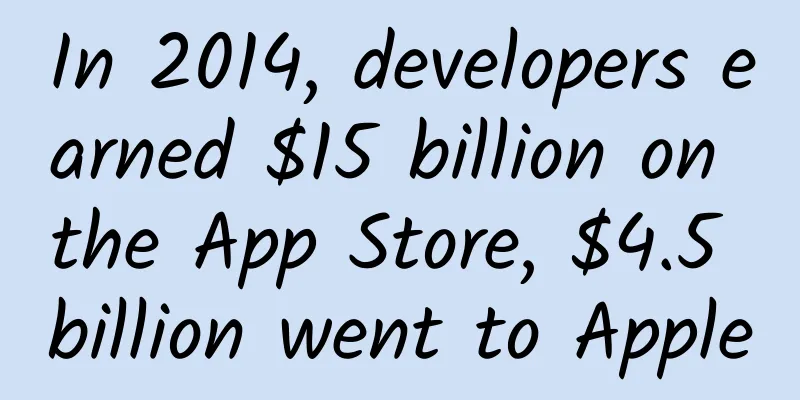Apple apologizes for iPhone slowdown, battery replacement price drops from 608 yuan to 218 yuan

|
Tencent Technology News: According to foreign media reports, Apple issued a statement on Thursday to apologize to consumers for the company's controversial decision to slow down the operation of older iPhone models to protect battery stability. "We know some of you feel Apple has let you down, and we apologize for that," Apple said in a statement. "There have been a lot of misunderstandings about this issue, so we wanted to set the record straight and let you know about some changes we're making. First, we have never -- and never will -- do anything to intentionally shorten the life of any Apple product, or degrade the user experience to drive upgrades. Our goal has always been to create products that our customers love, and making iPhone as durable as possible is an important part of that goal." Apple said in a statement that starting at the end of January next year, the company will reduce the cost of replacing an out-of-warranty iPhone battery by $50, from $79 to $29. In addition, the company will release an operating system update early next year to give users more information about battery life. How Apple's software update turned into 'batterygate' John Poole, the developer of the US benchmarking system Geekbench 4 and founder of Primate Labs, tested iPhone 6s, iPhone 7 and other devices under iOS 10.2, iOS 10.2.1 and iOS 11.2, and used data to show that the decline of iPhone batteries must be related to the performance of the processor, and that Apple limits the speed of the processor by changing the iOS system every time. Poole believes that Apple deliberately conceals the battery performance to make users mistakenly believe that their phones should be replaced. They don't think that the battery is the main cause of the phone's performance degradation and unexpected shutdown. Apple was forced to respond on December 20. The company admitted in a statement at the time: "Our goal is to provide users with the best experience, which includes the overall performance and life of the user's device. Lithium-ion batteries have reduced ability to provide peak current requirements in cold conditions. When the battery is low or aged, the device may shut down unexpectedly to protect electronic components." “Last year, we launched a new feature for iPhone 6, iPhone 6s, and iPhone SE that prevents unexpected shutdowns of devices by eliminating this peak current in special circumstances. In the iOS 11.2 update, we also synchronized this feature to iPhone 7, and plan to synchronize it to more devices in the future.” After learning the news, many consumers vented their dissatisfaction with Apple on social media. Eight class action lawsuits have been filed in California, New York, Illinois and other district courts on behalf of iPhone users across the United States. A lawsuit filed in the San Francisco District Court stated: "The battery cannot meet the demands of processor speed, but the software itself is not defective. Apple does not want to provide free battery replacements for all affected iPhones to make up for the battery defect, but instead tries to cover up the facts." It's extremely rare for Apple to comment on critical news reports. But this isn't the first time Apple has taken the blame for a product. For example, Apple adjusted its stance on App Store guidelines in 2010, and the company has also apologized for problems with the iPhone 4. The following is the full text of Apple's apology letter: Providing information to our customers about iPhone battery and performance "We've heard customer feedback about how we handle the performance of iPhones with older batteries and how we communicate this process to users. We know some of you feel Apple has let you down, and we apologize for that. There have been many misunderstandings about this issue, so we'd like to set the record straight and let you know about some changes we're making." First, we have never – and will never – do anything to intentionally shorten the life of any Apple product, or degrade the user experience to drive product upgrades. Our goal has always been to create products that customers love. Improving the durability of iPhone as much as possible is an important part of that goal. Why Batteries Age All rechargeable batteries are consumable parts and their ability to hold a charge will decrease as they chemically age. The time and number of times a battery is charged is not the only factor in this chemical aging process. Device usage also affects battery life. For example, leaving the battery in a hot environment or charging it in that environment will cause the battery to age faster. These are characteristics of battery chemistry, and lithium-ion batteries across the industry have these problems. Chemically aged batteries are unable to deliver peak energy loads, especially in a low state of charge, which can cause the device to unexpectedly shut down in certain situations. To help consumers learn more about the iPhone rechargeable battery and the factors that affect its performance, we have published a new support article, iPhone Battery and Performance. It goes without saying that we believe sudden, unexpected shutdowns are unacceptable. We don’t want anyone to miss a call, take a photo, or have their iPhone experience disrupted if we can avoid it. Prevent unexpected shutdowns About a year ago, with the release of iOS 10.2.1, we delivered a software update that improved power management during peak workloads to prevent unexpected shutdowns on iPhone 6, iPhone 6 Plus, iPhone 6s, iPhone 6s Plus, and iPhone SE. With this update, iOS dynamically manages the maximum performance of certain system components when necessary to prevent a shutdown. While users may not notice these changes, in some cases users may find that apps take longer to open or notice a decrease in performance. User feedback on iOS 10.2.1 was positive as it successfully reduced unexpected shutdowns, and we recently expanded this support to iPhone 7 and iPhone 7 Plus in iOS 11.2. Of course, when a chemically aged battery is replaced with a new one, the iPhone’s performance will return to normal when operating under standard conditions. Recent User Feedback Starting this fall we received feedback from some users that their devices were performing slower in certain situations. Based on our experience, we initially believed this was due to a combination of two factors: the normal temporary performance impact that occurs when iPhones upgrade their operating systems as they install new software and update apps, and some minor issues in the initial release. We now believe that another reason for the degraded user experience is the continued chemical aging of the batteries in iPhone 6 and iPhone 6s. Many iPhone 6 and iPhone 6s users are still using the original batteries that came with them. Addressing consumer concerns We always want our customers to use their iPhone for as long as possible. We are proud that Apple products are known for their durability and hold their value longer than our competitors’ devices. To address customer concerns, confirm their loyalty, and regain the trust of anyone who might be skeptical of Apple’s intentions, we have decided to take the following steps: From the end of January to December 2018, Apple will reduce the cost of replacing out-of-warranty iPhone batteries by $50 worldwide, from $79 to $29. Apple's official website will release specific details soon. In early 2018, we will release an iOS software update with new features that will give users more insight into battery life and allow them to see if their environment is affecting battery life. As always, our team is working to make the user experience even better, including managing performance as batteries age and avoiding unexpected shutdowns. At Apple, our customers’ trust means everything to us. We will never stop working to maintain it. We can do the work we love because of your belief and support — and we will never forget that, or take it for granted. |
<<: Android tracking technology analysis
>>: Five common communication methods between iOS apps
Recommend
Why does marketing to women so often fail?
Since entering the 21st century, the rise of fema...
Operation and Promotion: How to conduct paid knowledge training camp?
This article is based on my experience of three m...
User growth: How to build an analysis system?
In the world of the Internet , everything is for ...
One case study: 5 essential tools for marketers/salespeople/operators
You have just taken over the marketing work of an...
How can products be promoted effectively?
Many people write brilliant copy and make beautif...
Why is your SMS conversion rate always so low?
Only by constantly analyzing and comparing the dat...
Android touch events (notes)
There are not many articles with similar titles o...
Baidu Map Marketing allows customers to find you at a glance!
Baidu map marketing uses Baidu maps as a display ...
2019 traffic growth inventory!
2019 has not been an easy year, so today we will ...
How much does it cost to produce a digital mini program in Shijiazhuang? What is the quotation for producing digital mini-programs in Shijiazhuang?
There is no doubt that the topic of mini programs...
How to improve the effect of information flow and double the conversion?
We all know that whether it is bidding or informa...
Taoguba Linsanity Halfway Buying Model Complete PDF Document
Taoguba Linsanity Linsanity Halfway Buying Model ...
WeChat data report was questioned for monitoring users, Tencent responded
WeChat recently released its 2018 WeChat Data Rep...
Can WeChat images directly extract text and translate it? WeChat Android version internal beta has these updates
The Android version of WeChat has been put into i...
iOS 14.5 important update is here! Unlock your iPhone while wearing a mask!
Recently, Apple pushed the iOS 14.5 Beta version ...







![February Marketing Node Reminder [Dry Goods Collection]](/upload/images/67cc0ad304a9f.webp)

